The French New Wave or ‘Nouvelle Vague’ is the most famous cinematic movement in history that began around the year 1960 and ended in the early ‘70s. Techniques we take for granted today were catapulted into mainstream use by the colossal exposure the most famous artists behind the Nouvelle Vague were afforded: People like Jean Luc Godard, Francois Truffaut and Agnes Varda. It remains a pivotal explosion of creativity crucial to the advancement of the medium, which inspired other, perhaps greater, New Waves in Eastern Europe during the 1960s. Here is the list of top French new wave films ever.
15. L’ Atalante (1934)

Starting off with a caveat: Jean Vigo’s 1934 film pre-dates the Nouvelle Vague by several decades, but the impact of this previously underseen work’s resurgence and co-incidental meetings with main New Wave players like Jean-Luc Goddard and Francois Truffaut qualifies its place here because it’s a key reason why this list even exists. There are countless visionaries to match Vigo in the 20s-30s and even more adept directors on the scene than he was before a tragic premature death- but ‘L’ Atalante’ assembles so many uniquely original flourishes in a wholly cohesive work of art that the influence on French directors of the 60s is crystal clear. It’s a stream of limitless possibilities realized by someone who screwed the rules and decided to shoot a simple story with a remarkable amount of cinematic charisma. From its water-bound use of haunting multiple exposure to the quietly charming wordless exchanges of its two lovers, few landmark movies can match ‘L’ Atalante’. If it had actually come out during the period, this would be a hell of a lot higher.
Read More: Best Movie Shootouts of All Time
14. Shoot the Piano Player (1960)
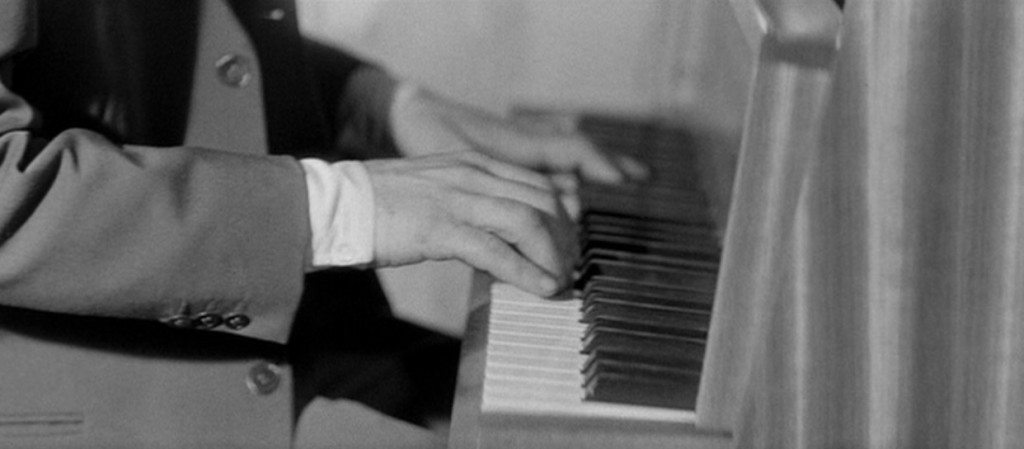
Francois Truffaut’s follow-up to the much acclaimed ‘The 400 Blows’, ‘Shoot the Piano Player’ takes a uniquely passive approach to crime cinema- settling it comfortably into the liquid cool of Nouvelle Vague-era Paris and allowing the story to unfurl at its own compelling pace. It develops the keen ambition present in his debut whilst not taking it as far as later works like Day for Night– abundantly confident in its own skin and never straying too far to impress. Instead, Truffaut’s realization of a criminal world far less savage and deadly than that of contemporary Jean-Pierre Melville is intoxicatingly romantic. A key primer for the untainted boldness of the French New Wave, be it in patient studies or intense poetry. In places, ‘Shoot the Piano Player’ finds a magical mix of the two.
Read More: Best Parenting Movies of All Time
13. Le Boucher (1970)
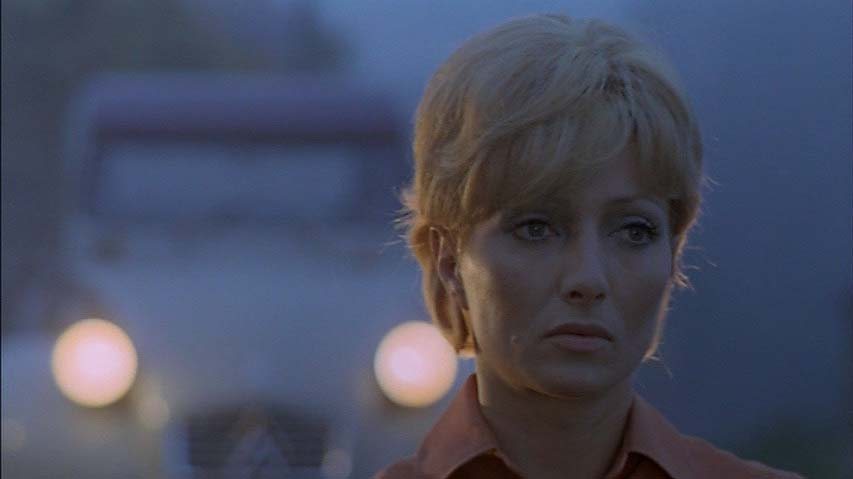
Cladue Chabrol’s 1970 reaction to the quick edits and breathless storytelling of the early Nouvelle Vague, ‘Le Boucher’ follows a well-liked school ma’am who engages in a platonic relationship with the local butcher and struggles with her suspicions as the women of the town begin to turn up dead. It’s a refreshingly reflexive and patient character-piece that tackles paranoia with a vivid understatement that effectively immerses you into the mind of our affected heroine. Chabrol’s ‘Le Boucher’ refuses to surrender ground in regards to catharsis, sticking to simple cinematic technique and scarcely allowing more than the allusion that a dead body has been found, rather than presenting a viscerally bloody corpse. Instead, all we have to go on are our own sneaking suspicions and the drama is played so straight that the final outcome hangs on the knife’s edge throughout. To discover the truth in its lethal tragedy- one needs only to dive into Chabrol’s essential piece. Recommendations also go out to his earlier ‘Les Biches’ and ‘Les Cousins’ of ’69 and ’58.
Read More: Best Vampire Movies of All Time
11. Jules et Jim (1962)
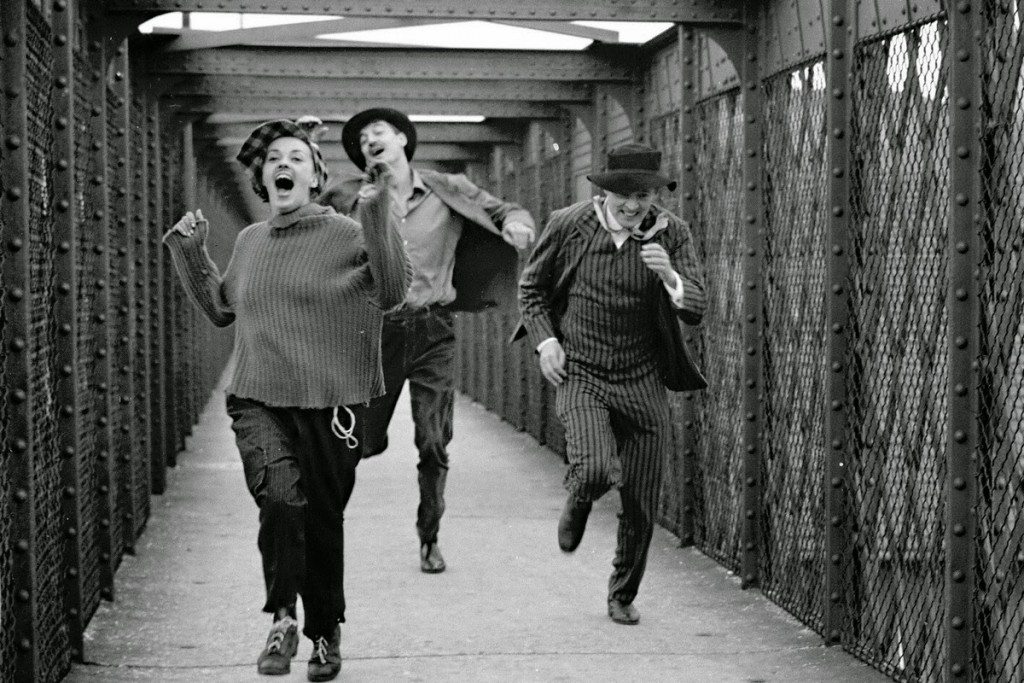
Truffaut’s finest achievement, ‘Jules et Jim’ tracks through the complex relationship of two male friends and a woman that both divides and unites them as time goes on. The premise itself is realized to superb effect with love struggling through the ages despite disagreements, allowing its audience to indulge in a rare look at people’s growth that is also directed with a sharpness that few films focused on such a story share. The inspiration Quentin Tarantino’s snappy filmography takes from the Nouvelle Vague becomes most clear here. If you enjoy his work, ‘Jules et Jim’ is the way to go.
Read More: Best Movies About Multiple Personality Disorder
11. Le Fou Follet (1963)

Emerging in the same year as ‘Jules et Jim’, ‘The Fire Within’ marks Louis Malle’s first slot on this list with a serious examination of a man teetering on the precipice of suicide. Addicted to the booze and unconscionably lonely, it draws comparisons to Bresson’s ‘Pickpocket’ of 1959, which was in hot competition for this place. Malle’s picture succeeded in packing its extra 40 minutes of run-time full of existential longing: A desire for any kind of change be it positive or traumatic in an effort to kick the protagonist’s dry spell of life that refuses to drown in alcohol.
Read More: Best Racing Movies of All Time
10. The Umbrellas of Cherbourg (1964)
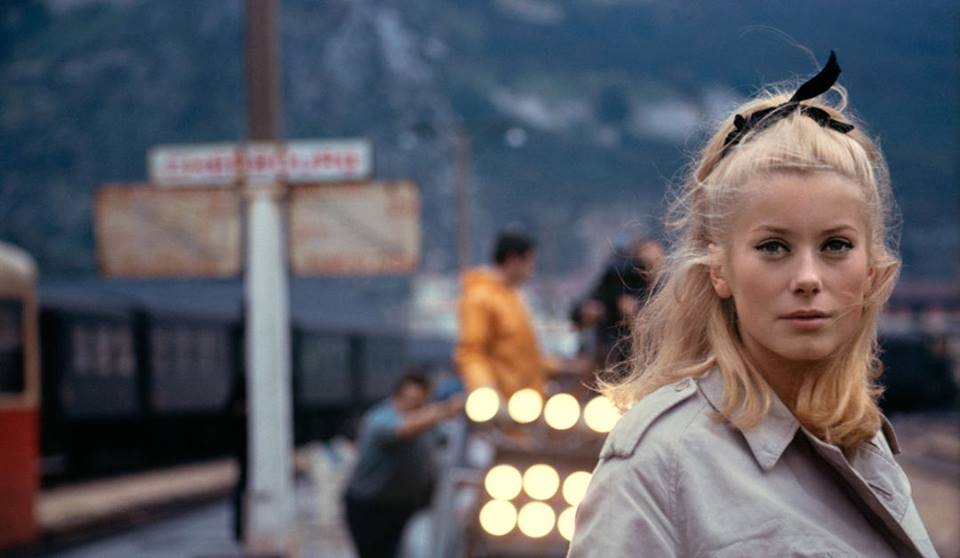
Jacques Demy’s films have proven their endurance recently with a key inspiration for Damien Chazelle’s ‘La La Land‘, some even taking note of the near-plagiaristic tendencies the young American talent exacted in his tribute to movie musicals from around the world. Ignoring the muddy politics of the matter, to love ‘La La Land’ is to surely find something to adore in the lyrical dance and song of Jacques Demy’s most famous picture. Both his superb ‘The Young Girls of Rochefort’ and ‘Lola’ are also worth seeing but as a starting point, this magnum opus of lavish colorization, tender choreography and unremitting warmth is a perfect place to begin. Most importantly, it allows itself an ending that Hollywood could never have- and it is the fact its sweetness survives and more profoundly grows through this conclusion that makes it so special.
Read More: Most Underrated Directors of All Time
9. Elevator to the Gallows (1958)
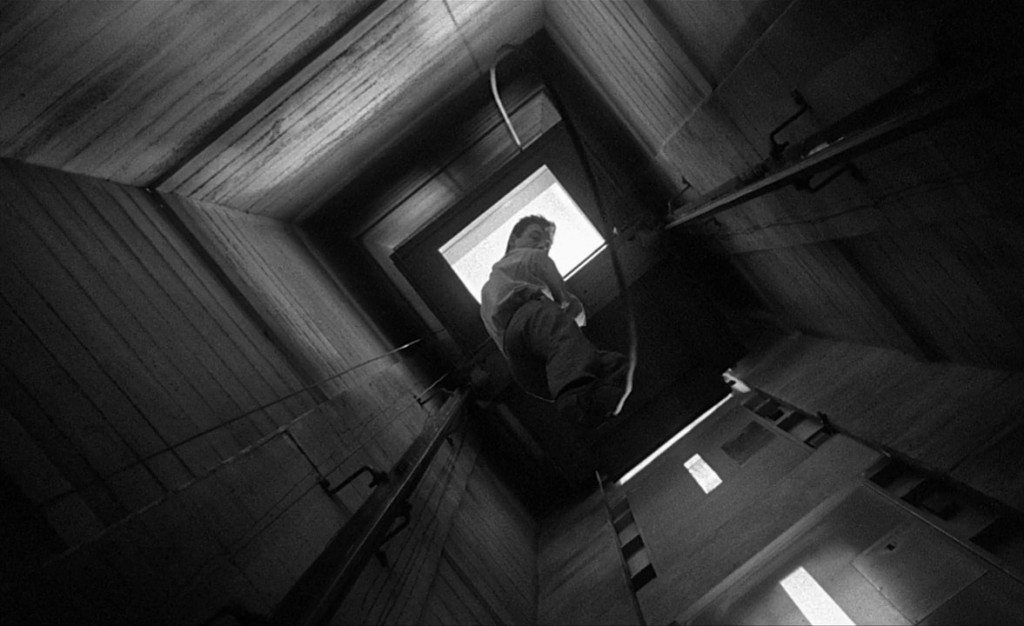
The other Louis Malle flick, ‘Elevator to the Gallows’ is perhaps most notable (or ironically shoved to the side) for pre-dating many of the ideas found in Godard’s ‘Breathless’. Unlike the funhouse farce who directed that film, however, Malle’s own debut here is one represented by unprecedented professionalism and an attentive understanding of what he is attempting to achieve. I specify attempting because of its 3 segments, one involving a runaway criminal couple identical in their contempt to the characters in Godard’s work is near impossible to watch in places. Malle allows his characters to get away with so much and almost encourages their infuriating inhumanity. Frustrating your audience is one thing, but to ignore the otherwise fruitful dramatic mines the other two segments present in favor of an arc that very nearly ruins all of the movies shows a misstep I cannot abide. If Malle had abandoned these characters, ‘Elevator to the Gallows’ might have been one of the most perfect suspense flicks ever mounted.
Read More: Best Low Budget Movies of All Time
8. The Mother & The Whore (1973)
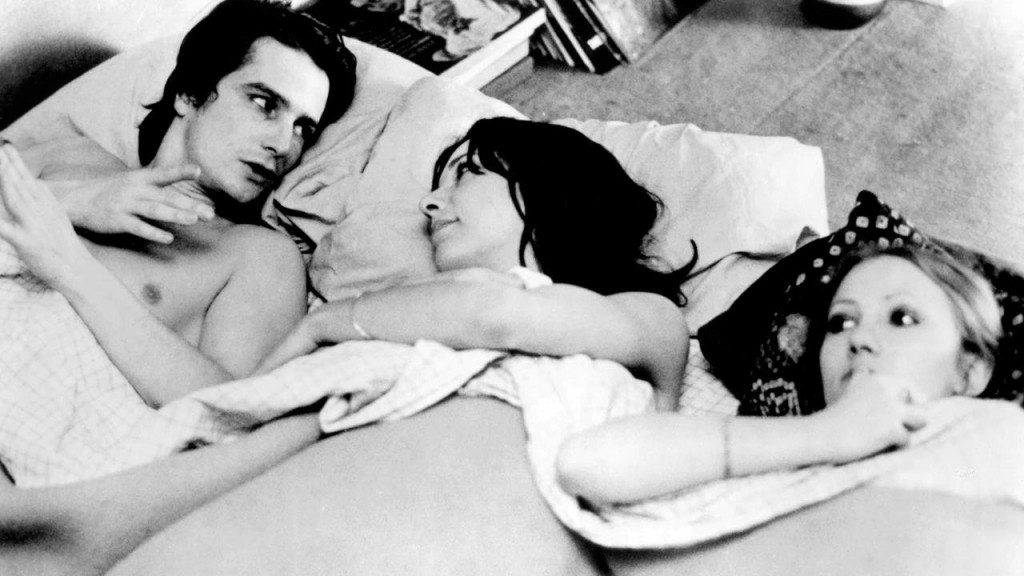
Often deemed the closing statement of the Nouvelle Vague, Jean Eustache’s 1973 film is also remarked as one of the most important and essential hard-to-find movies ever made. Seeking it out and enduring its 200-minute runtime is richly rewarded with a meditation on romantic relationships and the nature of human sexuality that remains both alluring and repulsive to this day. Eustache’s monochromatic stock lends his beautiful acting specimens a strange layer of grime and grotesqueness, as does the sharp language these people constantly fire at each other. Yet, there is also a warmth, humility and fascinating titan of scriptwork here to enjoy. A difficult task, undoubtedly, but one I implore fans of serious cinema to embark on whenever they find the time.
Read More: Most Manipulative Movie Characters of All Time
7. Eyes Without a Face (1960)
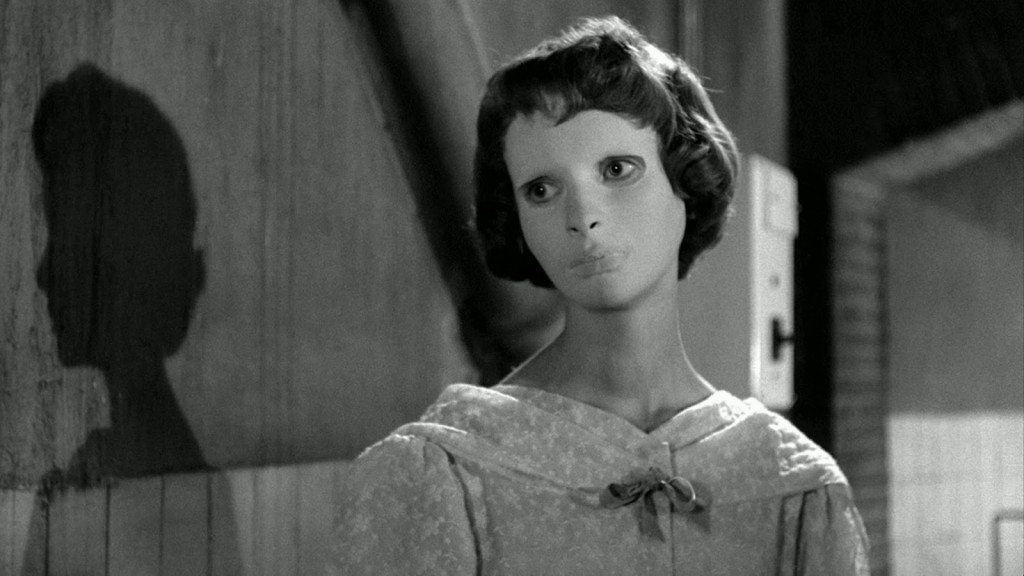
Georges Franju made a documentary after the Second World War shocking in its subject and profoundly horrifying in its implication with 1949’s ‘Blood of the Beasts’. It’s an important piece to consider, in the context of the same fears of the flesh that permeate his landmark 1960 film ‘Eyes Without a Face’. It’s credited as lending a respectable sensibility of depth and emotional subtext to the genre of horror, weaving both intriguing characters as well as chilling sequences which continue to haunt viewers into the 21st century. Its premise is straight out of a B-monster flick and yet the paradoxical humanity and adeptly foregrounded themes Franju consistently allows to breathe make this one an all-time classic horror flick, as well as a hugely important turning-point for world horror.
Read More: Movies That Predicted The Future Accurately
6. Au Hasard Balthazar (1966)
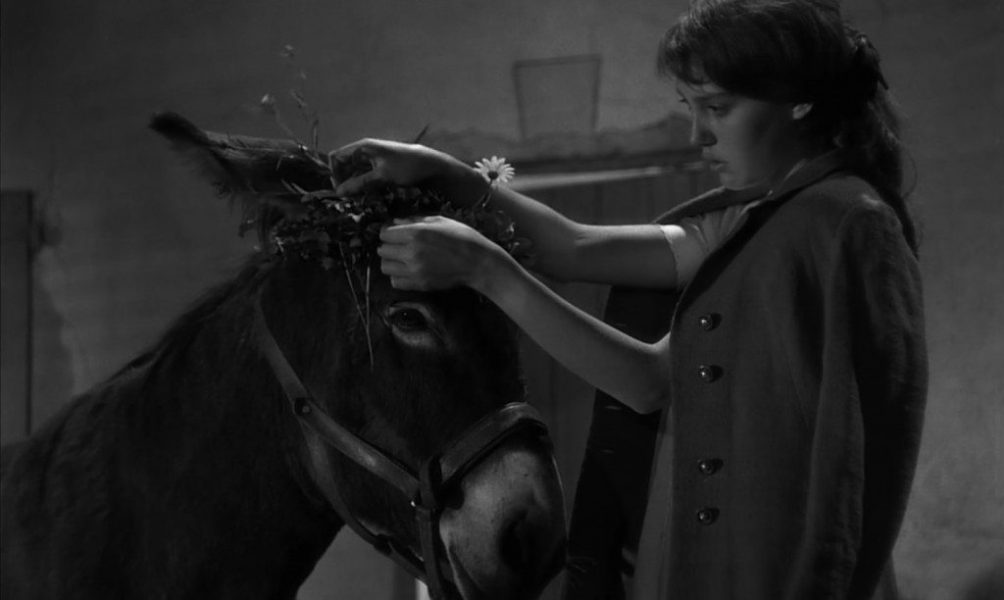
Questionably, Nouvelle Vague, considering Bresson’s long-established style, ‘Balthazar’ is nonetheless unique for its protagonist being a donkey and involved with the movement through Goddard volunteering to cut its trailer. The continuing evolution of Robert Bresson’s method, in conjunction with an explosion of creativity brought on by Breathless, birthed an austere flick that still manages to be ambitious both thematically and stylistically. Bresson makes himself comfortable outside of his comfort zone, tackling a non-human subject and yet still somehow illuminating a remarkable amount of human cruelty and tragedy in a way even movies centered solely around people struggle to compete with. It’s a work of invigorating emotion and prevailing warmth that eclipses the malice of many of its characters- which speaks to the power of the character of Balthazar and the fantastic way Bresson highlights and magnifies the tiniest expressions of an animal. Unique and ever-moving.
Read More: Most Mind Blowing Movie Theories of All Time
5. Le Samouraï (1967)
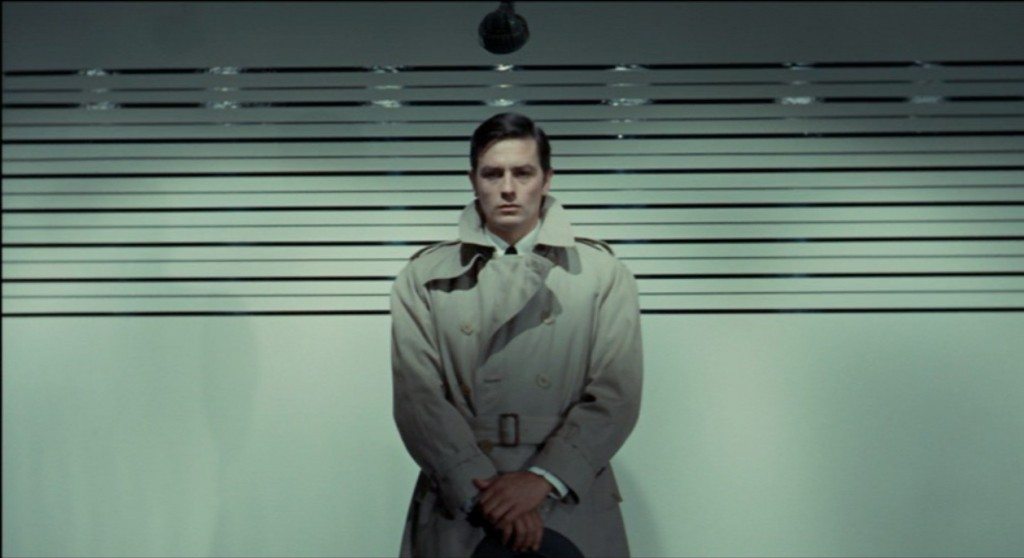
Perhaps the most masterful French director of all time, if ironically one who otherwise has nothing to do with the French New Wave, Jean-Pierre Melville made fantastic movies throughout the 1960s and it is his most experimental piece of work for which he is most widely recognized. ‘Le Samouraï’ follows Alain Delon is a beautifully subdued performance as a hitman for hire struggling with the complications that arose from his last job- hunted by the police, ripped off by his employers and romantically involved with a witness who could put him away for life. Melville handles the subject with profound precision and remarkable poise- displaying an expert sense of confidence despite the risky nature of his single-subject drama. The flick also saw a specific influence on a particular breed of Hollywood crime capers that recently came to the foreground again with 2011’s Drive- a remake of 1978’s ‘Driver’, which was explicitly created out of a fascination with ‘Le Samouraï.’ It makes a case for being the great French crime film, and in a country so obsessed with broad men wielding guns and smoking cigarettes, that alone qualifies it for any Watchlist.
Read More: Best European Film Directors of All Time
4. Playtime (1967)
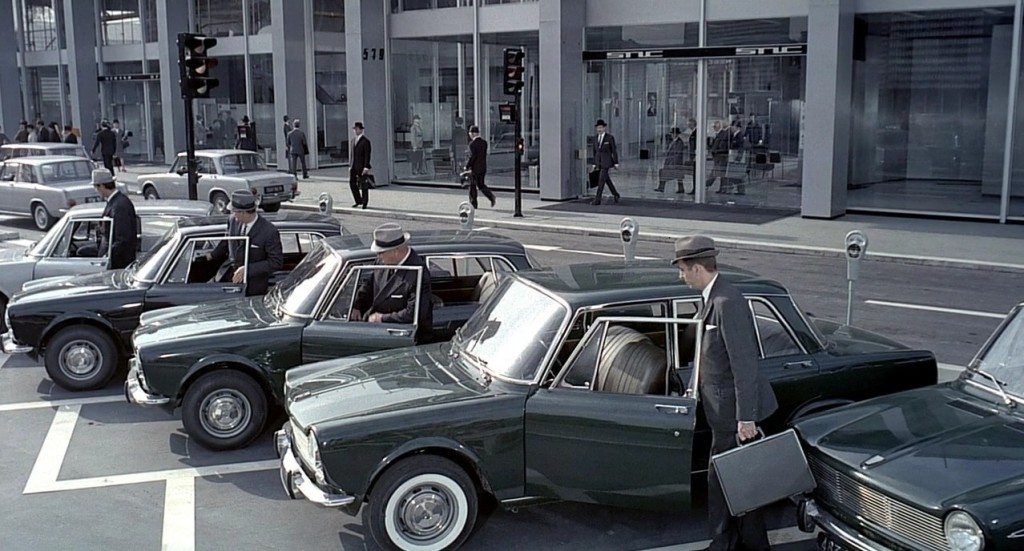
Another artist who made his name before the advent of the Nouvelle Vague, Jacques Tati is to French comedy what Charlie Chaplin remains to silent cinema. He’s an icon of pantomime who achieved devilishly intelligent pieces of sight-humor and never left a dull moment in the slew of classics he directed and was involved in. Check out ‘Mon Oncle’ and ‘Mr. Hulot’s Holiday’ to see what I mean. Before that, however, few cinematic experiences come close to matching the incandescent originality that blazes throughout his 1967 masterwork, ‘Playtime’. Following the recurring buffoon Mr. Hulot as he bumbles his way through a futuristic urban metropolis obsessed with commercialism, it’s hilarious, inventive, masterfully realized and features an exceptional ending sequence. There really is nothing quite like it.
Read More: Best Gambling Movies of All Time
3. Last Year at Marienbad (1961)
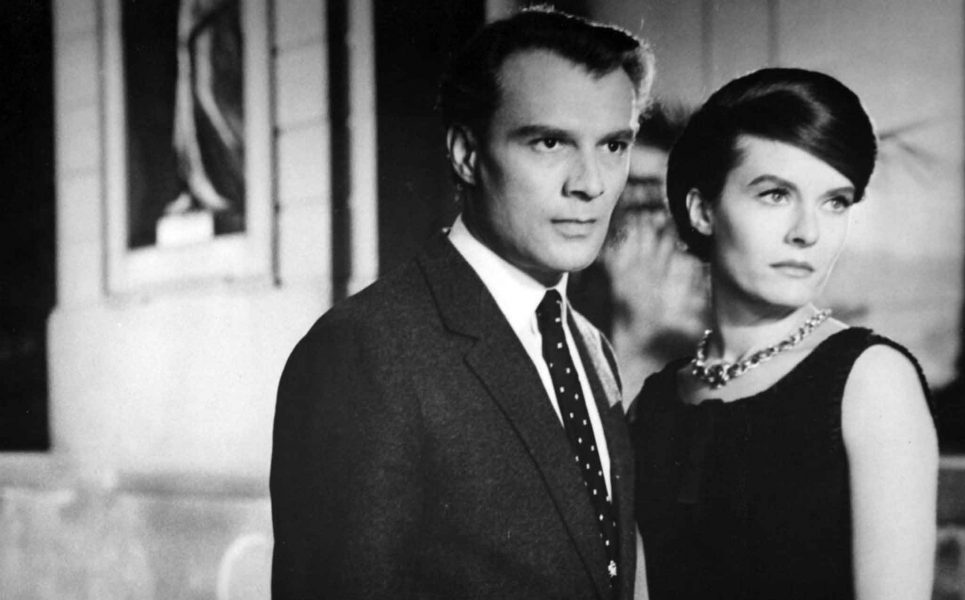
And on that note comes what is equally the most fascinating and perplexing choice on this list. Alain Resnais’ 1961 masterwork has been hailed as such by some and as incomprehensible mush by so many others. It’s a film free from narrative expectation or the rigidity of structure: Able to experiment outside of the constraints we see in almost every other mainstay film ever made. It loosely follows a man and a woman, the former adamant in the belief that they have met before. It’s a movie that becomes impossible to go further within writing without exposing my ideas on what it all means and I daren’t influence first timers because this really is something that leaves everyone with a different perspective. That may be loathing, true, but taking the plunge with ‘Last Year at Marienbad’ will irrefutably deliver the most cinematic and original experience the French New Wave has to offer.
Read More: Workout Movies of All Time
2. La Jetée (1962)
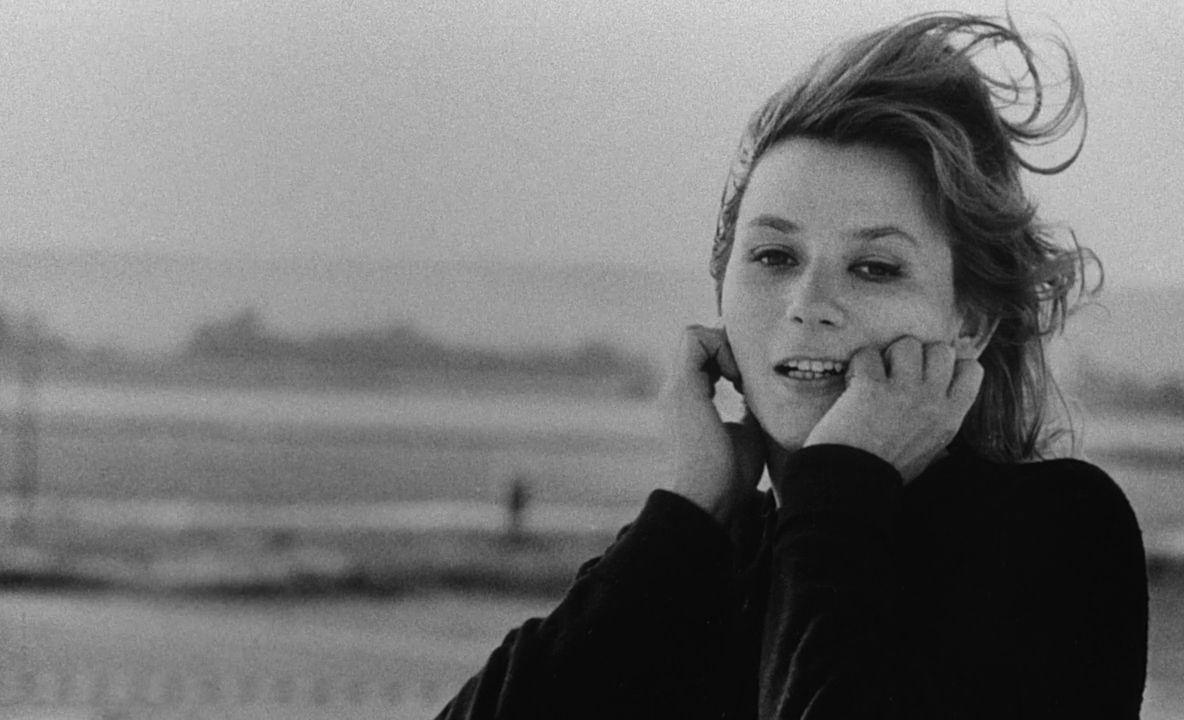
An attractive proposition running at just 29 minutes long, ‘La Jetée’ represents some of the most impeccable film-making ever achieved. It’s an arrangement of still images, narration and non-diegetic sounds that tell a sci-fi time traveling story that is crucial for study by anyone who wants to attempt to write that genre, chiefly because it allows itself to be unmistakably human. Rather than focusing on the attempts of its characters to fulfill their very scientific purpose, it tenderly observes their fleeting relationship- one constantly threatened by the finite boundaries of time. Moving and magical, there is no short film this side of ‘An Andalusian Dog’ or Maya Deren’s ‘Meshes of the Afternoon’ that comes close to its brief flash of inescapable beauty.
Read More: Best Movies About Nihilism Ever
1. Hiroshima, Mon Amour (1959)
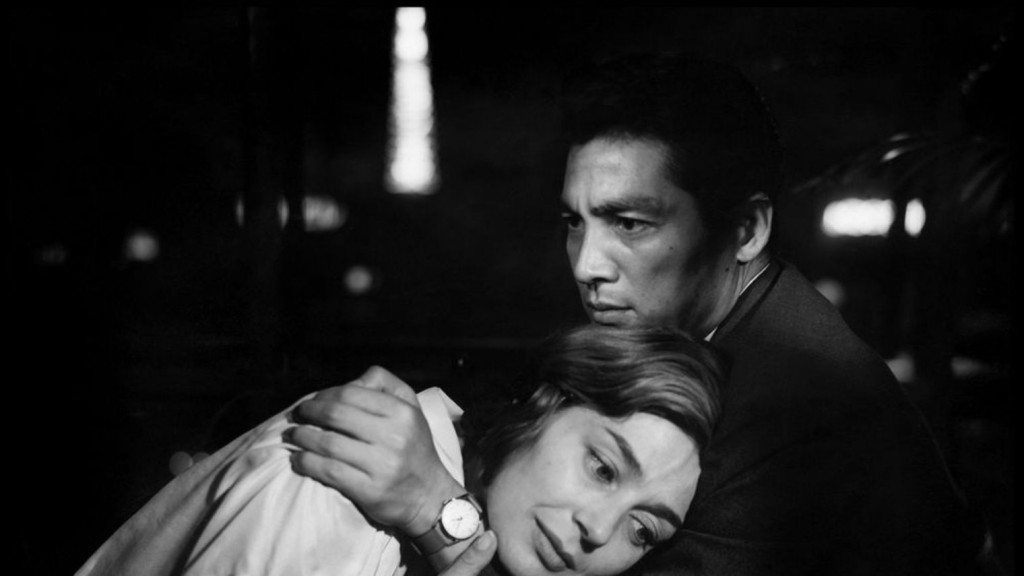
‘Hiroshima, mon amour’ weeps. It whimpers and bleeds sorrow from every pore that it’s gorgeous, perfect, powerful, horrifying, hellish nightmarish frames hold. Then suddenly it soars, full of life and love and passion- before sinking into existentialism, grief, guilt, isolation and a relatably chilling human fear. It’s a film of feeling that flows as a river through a countless stream of ideas, ideals and brutal revelations that work on more levels than you’d expect a 90-minute movie could manage, let alone one as expansive and epic as 4 hours in length. Director Alain Resnais imbues every moment with meaning and that is why it’s up here, why it’s the best and dare I say the greatest piece of work the Nouvelle Vague ever produced. Like ‘La Jetée’, it’s an inspired piece of editing that escapes the calculated coldness of its technique to bring us something richly intimate and involving. Resnais’ films, however experimental, are always incredibly involving to watch evolve and ‘Hiroshima, mon amour’ is doubtlessly the very best of them. Timeless.
Read More: Best Movie Franchises of All Time

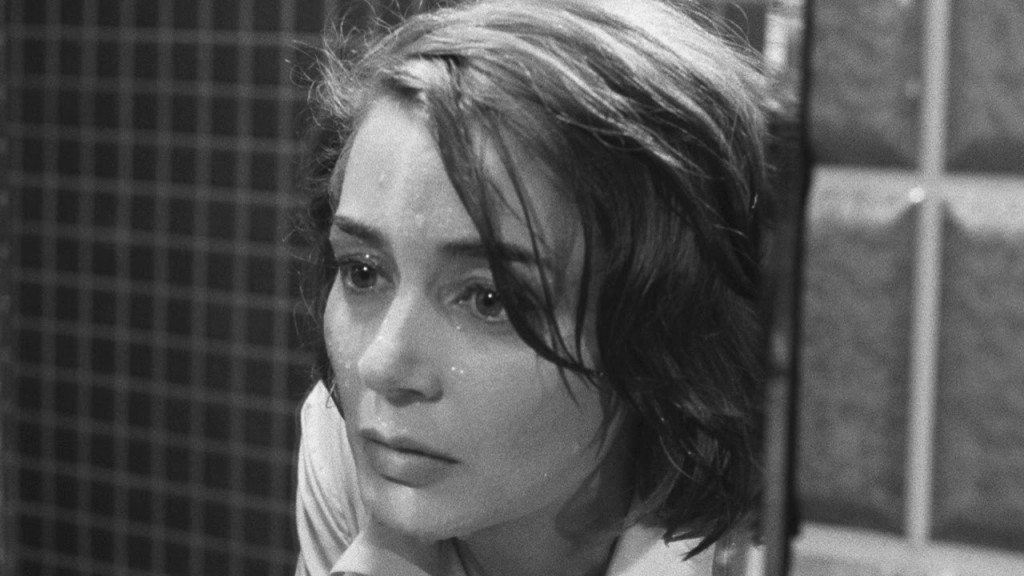
You must be logged in to post a comment.